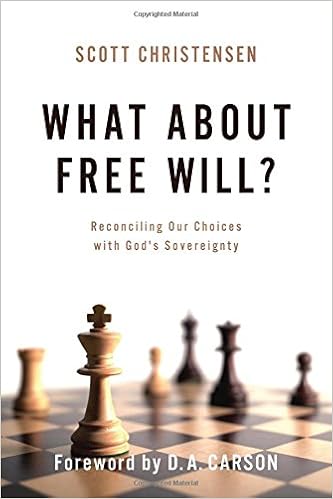What About Free Will
Reconciling Our Choices with God's Sovereignity
Scott Christensen
P&R Publishing, 2016
ISBN 978-1629951867; 304 pp; £12.99; pbk
… the gravest question before the Church is always God Himself, and the most portentous fact about any man is not what he at a given time may say or do, but what he in his deep heart conceives God to be like–A.W. Tozer, 1961 The Knowledge of the Holy. Bromley: STL, p9.
There is unequivocal biblical evidence for the belief that God is sovereign. Likewise, there seems to be biblical evidence for the belief in free will. How do we reconcile these two seemingly contradictory beliefs? Do we need to engage in double think, i.e. believing two mutually contradictory events as true? The temptation is to either affirm one and deny the other. But is that the only way to go?
One way that has recently been suggested to get around this problem is to affirm that God is in charge but he’s not in control (cf Bill Johnson). This however, makes God into a CEO, or someone like Queen Elizabeth II, ruling but not reigning. Such a perspective of a god is far from the biblical picture of God. So how can God be in control? If God controls all things then what about free will, prayer, and suffering and evil? If God controls all things are we left with fatalism? Does it mean that free-will is an illusion, that intercessory and petitionary prayer is fruitless, and that God is the cause of evil and suffering? It is these questions and issues that this book addresses.
Most Calvinists would affirm both the sovereignty of God and human free will; they hold to a position known as compatibilism - but is this doublethink? This book is an attempt to explain and defend the compatibilist position. If God is not sovereign then how can he be God? If we deny the sovereignty of God, then it means that in some way humans are responsible for their own salvation.
The strength and also weakness of the book is that it simplifies the issues. It means that the issues are made clear but the subtle nuances of the different positions are often missed. As such it then serves as a good introduction to the subject and a good first place to start for someone who wants to understand the key issues of human freedom and responsibility under a sovereign God.


No comments:
Post a Comment